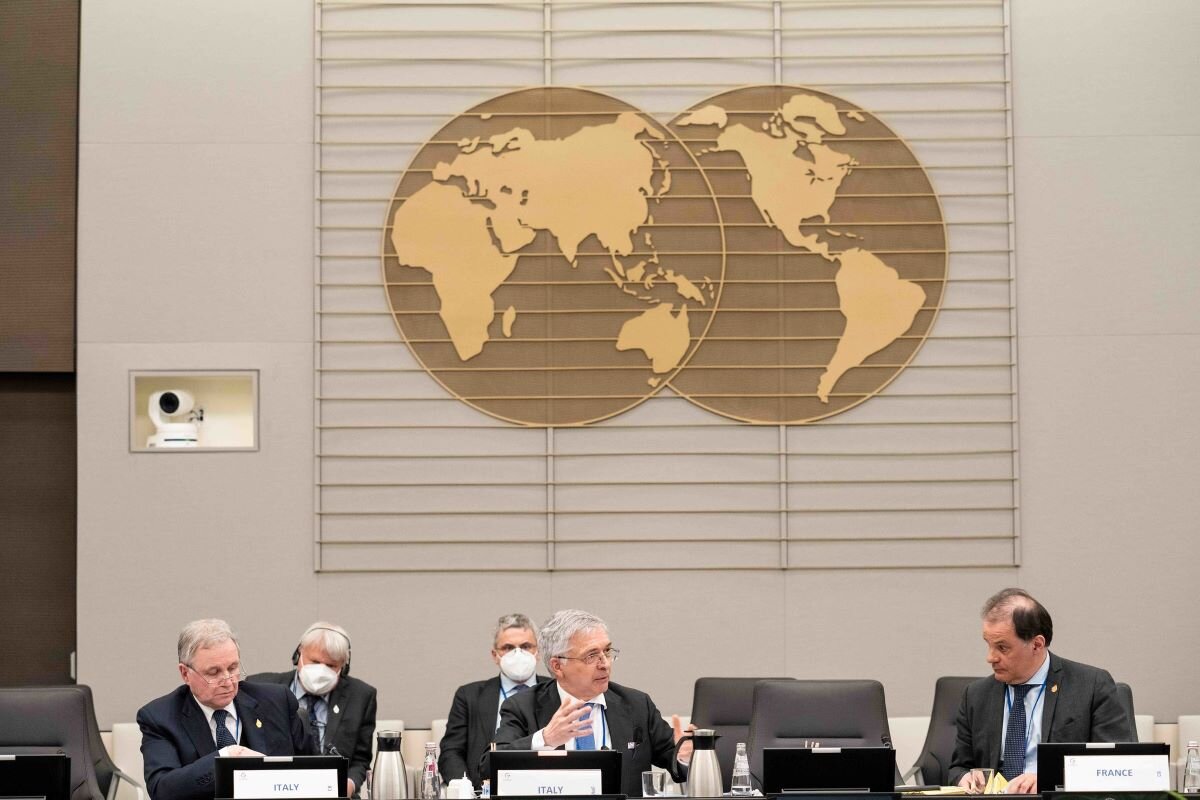Finance Ministers of G7 and G20 countries have a long way to go, both literally and figuratively, to move from the relatively underwhelming outcomes of their discussions in Washington to their next major meeting in Niigata, Japan in May.
G7 Finance Ministers published a statement on April 12, 2023, after meeting in Washington D.C. The next day, the Indian presidency of the G20 published a press release, to account for G20 Finance Ministers’ discussions in DC.
These documents send two messages:
- The G20’s ambition and capacity are very limited this year, putting the responsibility on G7 Finance Ministers to make progress on systemic financial reform for climate safety.
- There is a risk that the private finance reform agenda may not be adequately addressed by G7 Finance Ministers under the 2023 Japanese presidency.
The Indian G20 presidency resorting to the publication of a weak press release in lieu of a Chair’s Statement, with little new content to speak of, shows this forum’s limited ambition or capacity to achieve anything this year. Under normal circumstances, the yearly April meeting of G20 Finance Ministers in Washington D.C. is pivotal. It usually leads to the publication of a substantial communiqué agreed by all members, giving a sense of outcomes that may be collectively agreed upon by the end of the year. However, since the escalation of Russia’s aggression against Ukraine, and divisions on how to publicly qualify this, G20 have published heavily negotiated Chair’s Statements in lieu of communiqués.
In this context, the onus lies more than ever on the G7, and its Finance Ministers. Their responsibility is to achieve concrete progress on the systemic finance reform agenda for climate safety. But more broadly, they must show leadership to prove that multilateral cooperation remains possible. If a small group of like-minded economies cannot cooperate and agree on responsible goals of common and public interest, then who can?
The G7 Finance statement was mostly meant to reiterate a common position on the Ukraine war, not showcase all topics the forum will tackle this year. But it raises concern that the systemic financial reform agenda for climate safety may not be adequately addressed in 2023.
To be sure, the statement included several positive signals regarding the public finance pillar of this agenda:
- It showed sustained attention from G7 Finance Ministers, and its Japanese presidency, to the public finance pillar of the systemic finance reform agenda, and the measures needed to support low and middle-income countries. The voluntary pledge made that week by Japan to double its rechannelling of Special Drawing Rights from 20% to 40% sent a particularly strong signal, backing up France’s example.
- Another notable and positive development is the willingness of G7 countries to tackle more proactively the subject of multilateral cooperation and transparency around supply chain challenges in a geopolitically fractured world facing climate threats. The statement included an annex on this topic, and a need for enhanced cooperation around the use of public finance tools (such as tax subsidies) to support supply chain resilience. The US’ Inflation Reduction Act, while very positive in some regards, had also raised significant concerns from key allies – from Europe to IMF Managing Director Georgieva.
However, no mention was made in the statement of the three critical outcomes needed on the private finance pillar of the systemic reform agenda:
- Private sector disclosures: moving from broad support to the disclosure standards that are soon to be finalised by the International Standards Setting Board to a stronger commitment to ensuring these standards do practically become the global baseline in coming years;
- Mandatory transition planning for the private sector, with a sector-neutral approach to ensure consistency and support the many potential uses of transition plans. Transition plans are critical to achieve collective decarbonisation goals and build clean economies. Although Finance Ministers were silent on the topic, this was fully acknowledged by G7 Climate & Energy Ministers a few days later on 16 April;
- Next generation financial regulation for climate safety, to align the global financial system’s incentives with the risks and opportunities associated with the required whole-of-economy transition towards climate safety – encompassing both mitigation and adaptation.
All eyes will be on G7 Finance Ministers when they meet in Niigata from May 11th-13th. Japan demonstrated great leadership and ambition with its recent decision on SDR reallocation. We hope it will demonstrate the same qualities on the other critical finance actions needed to secure climate safety.


